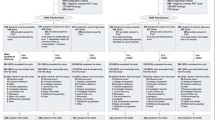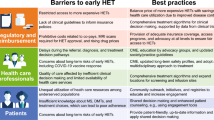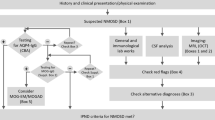Abstract.
Progression of disability in multiple sclerosis (MS) appears related to axonal damage, which is at least in part associated with white matter lesions. Beta-interferon (BIFN) substantially reduces new inflammatory activity in MS and a recent report suggested that it may reverse a component of axonal injury. To test the generalisability of this conclusion, particularly in a population with relatively active disease, we used magnetic resonance spectroscopy measures to test whether BIFN can reverse or arrest progression of axonal injury in patients with MS. Eleven patients with a history of active (median, 1.5 relapses/year) relapsing-remitting MS were treated with BIFN and responses to treatment were monitored with serial MRI and single voxel magnetic resonance spectroscopic measurements of relative concentrations of brain N-acetylaspartate (NAA), a measure of axonal integrity from a central, predominantly white matter brain region. BIFN treatment was associated with a significant reduction in relapse rate (p = 0.007) and white matter water T2 relaxation time (p = 0.047) over 12 months. Also consistent with a treatment effect, white matter T2-hyperintense lesion loads did not increase. However, the central white matter NAA/creatine ratio (NAA/Cr, which was reduced over 16 % in patients relative to healthy controls at the start of treatment), continued to decrease in the patients over the period of observation (mean 6.2 % decrease, p = 0.02). For individual patients the magnitude of the NAA/Cr decrease was correlated with the frequency of relapses over the two years prior to treatment (r = −0.76, p = 0.006). These data suggest that reduction of new inflammatory activity with BIFN does not invariably halt progression of axonal injury. Nonetheless, there appears to be a relationship between the rate of progression of axonal injury and relapse rate over the previous two years. The consequences of reduced inflammation on pathological progression relevant to disability therefore may be present, but substantially delayed. Alternatively, distinct mechanisms may contribute to the two processes.
Similar content being viewed by others
Author information
Authors and Affiliations
Additional information
Received: 12 April 2002, Received in revised form: 12 August 2002, Accepted: 3 September 2002
Correspondence to P. M. Matthews
Rights and permissions
About this article
Cite this article
Parry, A., Corkill, R., Blamire, A. et al. Beta-Interferon treatment does not always slow the progression of axonal injury in multiple sclerosis. J Neurol 250, 171–178 (2003). https://doi.org/10.1007/s00415-003-0965-8
Issue Date:
DOI: https://doi.org/10.1007/s00415-003-0965-8




